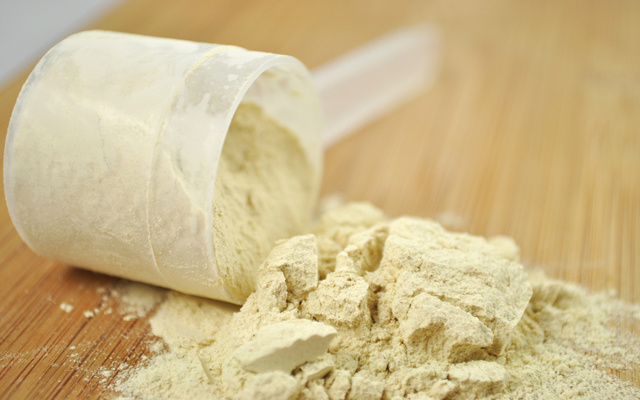One of the keys to a healthier, longer life is sustaining healthy blood sugar. Managing blood sugar is different for every person, but it doesn’t have to be difficult—in some cases, it can be as simple as consuming whey protein before or with each meal.
The reason may be because whey protein stimulates the production of hormones in the gut that help to improve the efficiency of insulin needed to lower blood glucose, according to recent research published in the journal Diabetologia.
In the crossover trial, 15 subjects with type 2 diabetes consumed 50 grams of whey protein mixed with water 30 minutes prior to meals on one day and used a placebo drink prior to their meal another day (1). The meal consisted of foods known to cause the most dramatic spikes in blood sugar—high-glycemic foods—such as white bread and jelly. To track the effects of the meal on blood sugar and insulin levels, the researchers tested each subject’s blood just before and after they drank the whey protein or placebo drink, 15 and 30 minutes after they ate their meal, and every 30 minutes after that for three hours.
At 30 minutes, insulin response after the meal was 96 percent higher when the patients pre-loaded with whey protein, meaning their bodies did a better job of ushering sugar that was consumed into cells than when they didn’t consume whey before their meal. This resulted in a 28 percent decrease in blood sugar levels simply by consuming whey before a meal.
Researchers suggested that whey protein promoted the production of the intestinal hormone GLP-1, which is a glucagon-like peptide that stimulates the production of insulin. This is an important function, especially in people with diabetes whose insulin production may be impaired or for those who rely on insulin injections, because it prompts increased production of insulin. An ample supply of insulin is key in offsetting dangerous blood sugar spikes and fluctuation of energy levels that often occur after meals high in carbohydrates.
A similarly designed study in 2005 published in The American Journal of Clinical Nutrition focused on the incorporation of whey protein in a meal, instead of before, and its effects on insulin activity and blood sugar levels after a meal (2). The subjects were given a whey protein supplement with a meal of readily absorbed carbohydrates (mashed potatoes and meatballs). The next day they were given the same meal but whey protein was substituted with another source of protein: lean ham. Blood sugar and insulin levels were analyzed before and after the meal. The researchers found that insulin responses increased by 57 percent resulting in a 21 percent lower blood sugar response with the incorporation of whey protein in a meal. The take away? It’s not just about eating protein; whey protein in particular has beneficial effects on blood sugar management.
The results of both studies strengthen the implications of the positive effect whey protein has on blood sugar control—whether taken as a supplement before a meal or as part of a meal. Consumers with type 2 diabetes are advised to discuss different approaches for blood sugar management with their doctors before making adjustments to their diets.
Here are some ways you can incorporate whey protein into your diet daily:
- Consume whey protein (such as IsaPro®) mixed with water before an indulgent meal higher in carbohydrates. You can even add a splash of juice to boost flavor.
- Drink a smoothie or shake that contains whey protein for your meal. IsaLean® meal replacements contain high-quality whey protein along with low-glycemic carbohydrates and healthy fats for a complete meal replacment.
- Add whey protein powder to meals or baked goods. Try mixing whey protein powder into your oatmeal, pancake batter, or homemade protein bars.
References:
- Jakubowicz D, Froy O, Ahrén B, et al. Incretin, insulinotropic and glucose-lowering effects of whey protein pre-load in type 2 diabetes: a randomised clinical trial. Diabetologia. 2014. doi: 10.1007/s00125-014-3305-x
- Frid AH, Nilsson M, Holst JJ, Bjorck IM. Effect of whey on blood glucose and insulin responses to composite breakfast and lunch meals in type 2 diabetic subjects. Am J Clin Nutr 82: 69–75, 2005.






